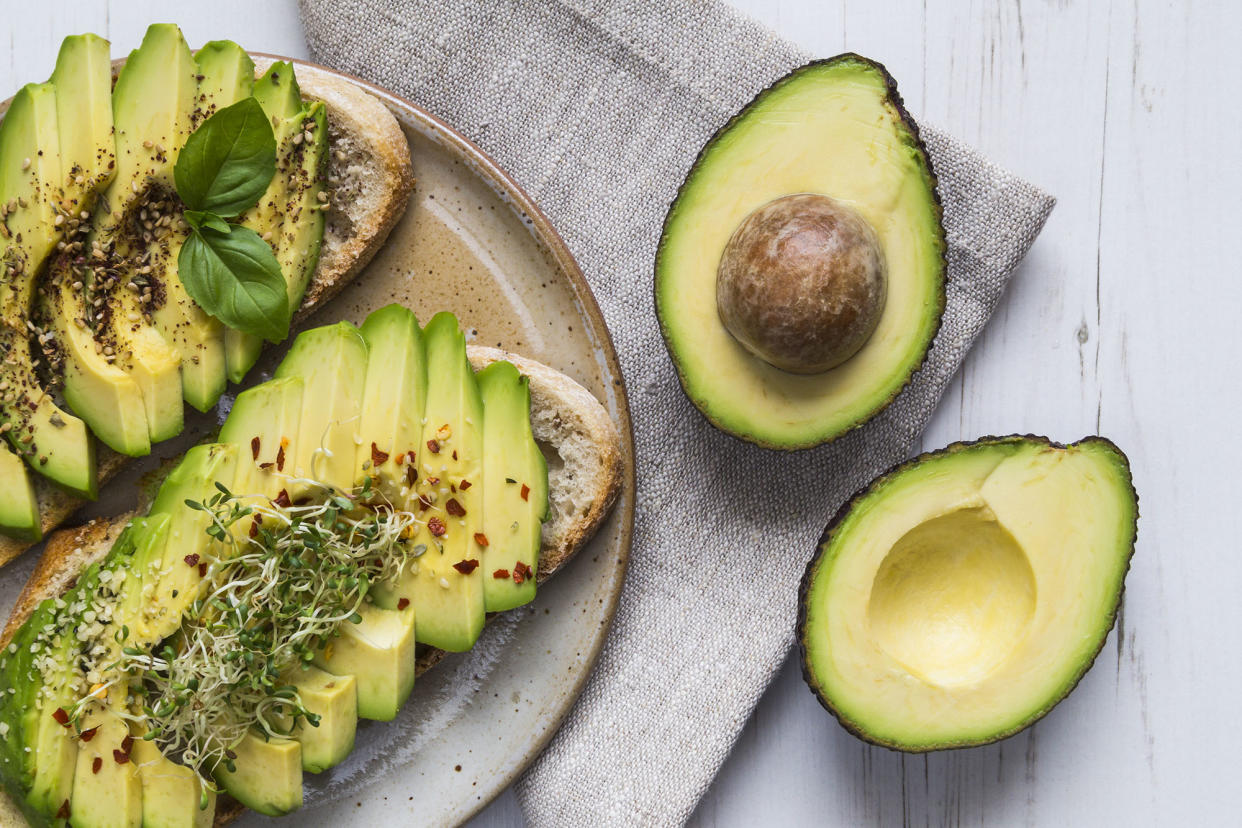An avocado a day could ward off heart attacks and stroke

Avocado on sourdough is a go-to brunch, but millennials may not realise how good the trendy order is for their hearts.
Scientists from the University of Pennsylvania looked at 45 overweight or obese volunteers, whose weight put them at higher risk of heart attacks and stroke.
Some of the participants were asked to add an avocado to their daily diet.
Five weeks later, their “bad” cholesterol had significantly reduced.
READ MORE: You'll Always Have a Perfectly Ripe Avocado If You Use These 2 Hacks
Avocados are rich in antioxidants that may help to lower cholesterol, with the fruit closest to the skin being the most nutrient dense.
Cholesterol could otherwise accumulate in the arteries to form a clot, which can trigger heart attacks or stroke.
Heart disease is a major killer, with one in four people in both the UK and US dying from the condition, statistics show.
Avocados have been shown to reduce the risk of everything from cancer to arthritis, while also improving eyesight.
Rich in fat, albeit the “good” kind, the fruit’s effect on heart health was less clear.
To learn more, the scientists first asked the volunteers to eat a typical American diet for two weeks, so they all started on the same “footing”.
READ MORE: Here's How to Successfully Grow Your Own Avocado Tree
The participants were then divided into three eating groups: low fat, moderate fat or moderate fat with a daily avocado.
Those eating moderate fat without an avocado were given supplements to match the fat consumption of the latter group.
Results, published in the Journal of Nutrition, reveal the volunteers that ate an avocado a day had significantly less oxidised low density lipoprotein (LDL) cholesterol than the other participants.
LDL, or bad, cholesterol can build up in the blood vessel walls, causing them to narrow and become stiff.
This is unlike high density lipoprotein (HDL), “good” cholesterol, which moves LDL from the blood to the liver, where it is broken down.
Oxidised LDL comes about when it reacts with unstable molecules called free radicals.
This makes bad cholesterol more “reactive”, triggering inflammation that leads to disease.
READ MORE: 24 Ways to Eat an Avocado
"A key finding was people on the avocado diet had fewer oxidised LDL particles,” study author Professor Penny Kris-Etherton said.
They also had higher levels of the antioxidant luetin, which may protect against oxidation.
"We know that when LDL particles become oxidised, that starts a chain reaction that can promote atherosclerosis, which is the build-up of plaque in the artery wall,” Professor Kris-Etherton said.
"Avocados are such a nutrient-dense package and I think we are just beginning to learn about how they can improve health.
"People should consider adding avocados to their diet in a healthy way, like on whole wheat toast or as a veggie dip."
Although encouraging, the scientists stress much more research needs to be done.
"Nutrition research on avocados is a relatively new area of study, so I think we are at the tip of the iceberg for learning about their health benefits,” Professor Kris-Etherton said.
While avocados may be good for our hearts, the trendy fruit could be wreaking havoc on the environment.
The brunch staple is a “thirsty crop”, requiring around twice as much water as the same weight of oranges, Tom Cumberlege, associate director of the corporate carbon measuring company Carbon Trust, told Vice.
“The environmental impacts from avocados come from the energy, water, fertiliser and pesticide required to grow them, the resources used for packaging materials, and the energy used in processing, transporting and keeping them cool to preserve their freshness,” he said.
With their unrelenting popularity in the UK, avocados also have to be flown a long way from the sunnier climes where they flourish.
“As a general rule, the further away they are eaten from where they are grown, the bigger the environmental impact,” Mr Cumberlege said.
“Global production is growing rapidly to meet demand, doubling over the past two decades, which in some regions has been linked to deforestation and environmental degradation of land.”


